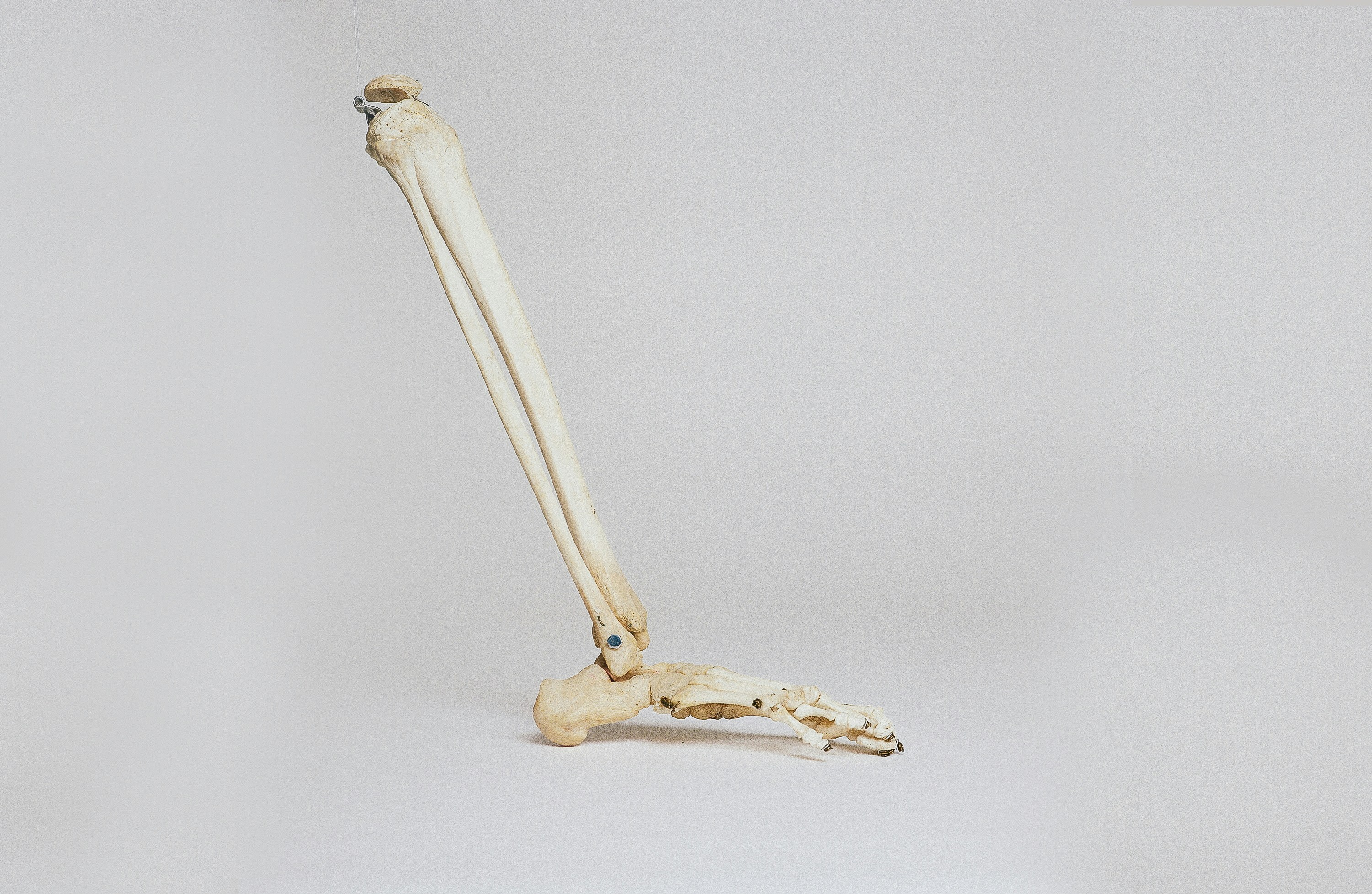
Photo by <a href="https://unsplash.com/@freestocks" rel="nofollow">freestocks</a> on <a href="https://unsplash.com/?utm_source=hostinger&utm_medium=referral" rel="nofollow">Unsplash</a>
Introduction to Acology
Acology is a burgeoning discipline that integrates the realms of medicine, pharmaceuticals, and holistic therapies. The term itself stems from the Greek roots “akos,” meaning remedy, and “logia,” meaning study, encapsulating a comprehensive examination of medical remedies and therapeutics. In an era where integrative and preventive health strategies are gaining significance, acology’s relevance is paramount, exploring the intricate relationship between various treatment modalities.
The significance of acology lies in its holistic approach to health. It acknowledges that effective treatment goes beyond the mere alleviation of symptoms; it encompasses a broad spectrum of therapeutic interventions, including traditional medicine, complementary therapies, and emerging medical technologies. This multidimensional perspective fosters a deeper understanding of patient care, ultimately aiming to improve overall health outcomes and enhance the quality of life.
Historically, the roots of acology can be traced back to ancient healing practices, where the interplay of herbs, minerals, and spiritual beliefs formed the foundation of therapies. Over time, as medical science evolved and evidence-based practices emerged, acology began to incorporate rigorous scientific methodologies. In the contemporary landscape, this discipline empowers practitioners to bridge the gap between conventional and alternative treatments, ensuring a more nuanced approach to patient care.
As healthcare systems increasingly recognize the importance of personalized medicine and the need for comprehensive treatment options, acology emerges as a critical field. It serves not only to educate healthcare professionals about the intricacies of various therapies but also to inform patients regarding their choices in healthcare. This intersection of knowledge is essential for fostering informed decision-making and encouraging collaborative discussions between patients and healthcare providers.
Historical Background of Acology
Acology, the science dedicated to medical remedies and therapeutics, has roots that stretch back to ancient civilizations. The practice of healing can be traced to early humans who engaged in rudimentary forms of medicine, often relying on natural substances found in their environment. These early practitioners, who could be considered the pioneers of acology, included shamans and healers who utilized herbs, mineral-based substances, and animal products. They laid the groundwork for understanding the therapeutic properties of various materials, effectively forming the foundation upon which modern acology stands.
As societies evolved, so did their medical practices. In ancient Egypt, for instance, the use of medicinal plants was documented on papyrus scrolls, reflecting a sophisticated understanding of pharmacology. Similarly, ancient Greek physicians, such as Hippocrates and Galen, contributed significantly to the field by classifying diseases and advocating for the use of specific remedies, linking natural therapies to the roots of acology. Their observations and teachings emphasized the importance of holistic care, advocating for the balance of the body’s humors as essential to health.
The medieval period saw the rise of herbalists and alchemists, who played a crucial role in preserving and expanding the medical knowledge inherited from earlier civilizations. Their contributions included the crafting of new remedies and the establishment of early hospitals which became centers for healing. Notable figures, such as Avicenna, further advanced the field by compiling vast collections of medical knowledge, which were later translated and studied in Europe during the Renaissance. This period marked a shift towards a more systematic approach to healing, paving the way for modern acology.
Throughout history, traditional medicine has significantly influenced acology, helping to shape its principles and practices. Today, the integration of ancestral wisdom with contemporary scientific research continues to drive the discipline forward, ensuring that acology remains a relevant and evolving field in the landscape of healthcare.
Core Principles of Acology
Acology, as the science of medical remedies and therapeutics, is built upon several core principles that significantly influence patient care. At the heart of acology is the scientific method, which serves as the foundation for evaluating medical remedies. This systematic approach allows practitioners to formulate hypotheses, conduct experiments, and analyze results to draw conclusions about the efficacy and safety of therapeutic interventions. By adhering to scientifically proven practices, acology ensures that medical remedies are not merely based on tradition or anecdotal evidence but are subject to rigorous testing and validation.
One of the crucial principles in acology is the importance of evidence-based practice. This approach integrates clinical expertise, patient values, and the best available research evidence to guide decision-making in healthcare. By focusing on evidence-based treatments, practitioners can tailor their interventions to meet individual patient needs while maximizing therapeutic outcomes. This principle not only enhances the credibility and reliability of medical remedies but also fosters a collaborative environment where healthcare providers can engage with patients in discussions about their treatment options.
Another essential aspect of acology revolves around the principles of dosage, administration, and monitoring for effectiveness. The precise measurement of dosages is vital to ensure that patients receive the appropriate amount of a remedy, minimizing the risk of toxicity or ineffectiveness. Moreover, the method of administration can significantly influence the absorption and efficacy of the remedy, necessitating careful consideration based on patient-specific factors. Continuous monitoring is also paramount; evaluating the effectiveness of a treatment allows practitioners to make timely adjustments and optimize patient care. Collectively, these core principles underpin the practice of acology, ensuring a robust framework that prioritizes patient safety and therapeutic success.
Types of Medical Remedies in Acology
Acology presents a diverse spectrum of medical remedies that are essential for effective therapeutic interventions. These remedies can be broadly categorized into three principal types: pharmacological agents, natural remedies, and alternative therapies. Each category encompasses a variety of modalities that vary in their composition, mechanisms of action, and applications.
Pharmacological agents represent the cornerstone of modern medicine, including prescription medications and over-the-counter drugs. These agents are typically developed through rigorous scientific research and clinical trials to establish their efficacy and safety profiles. Common pharmacological agents include analgesics, antibiotics, and antihypertensives, which are employed to manage a range of ailments from pain relief to cardiovascular health. However, their use is often accompanied by potential side effects and drug interactions that necessitate careful consideration and monitoring by healthcare professionals.
In contrast, natural remedies comprise substances derived from botanical, mineral, and animal sources. Herbal medicines, dietary supplements, and homeopathic remedies fall under this category. The appeal of natural remedies lies in their holistic approach, often emphasizing wellness and prevention rather than merely treating symptoms. Research supports certain natural remedies for specific conditions, such as ginger for nausea or turmeric for inflammation, yet the efficacy and safety of many remain under investigation. Therefore, it is crucial to consult healthcare providers before incorporating these into treatment plans.
Alternative therapies, including acupuncture, chiropractic treatment, and mindfulness practices, expand the therapeutic arsenal beyond conventional medicine. These modalities often aim to treat the whole person rather than isolating a specific condition. While some individuals report significant benefits from these approaches, rigorous scientific validation is often lacking, raising questions regarding their overall effectiveness.
Understanding the distinctions between these types of medical remedies in acology is fundamental for patients and practitioners alike, as it enables informed decision-making in therapeutic practices. Each type carries its unique implications for health outcomes, guiding the selection of the most appropriate intervention for individual needs.
Role of Acology in Modern Medicine
Acology, the scientific study of medical remedies and therapeutics, has become an integral component of contemporary healthcare systems. In an era where patients often seek holistic approaches to health, acology offers a bridge between traditional medical practices and alternative therapies. This discipline complements conventional medicine by providing a broader understanding of treatment options, which is especially valuable in addressing complex health issues.
One of the hallmarks of acology is its emphasis on collaboration among healthcare professionals. Acologists work closely with physicians and pharmacists to design patient-centered treatment plans that optimize therapeutic outcomes. This interdisciplinary approach ensures that patients receive comprehensive care tailored to their individual needs. For instance, an acologist might recommend specific herbal remedies or dietary supplements that can enhance the effectiveness of prescribed medications, thereby fostering a synergistic relationship between different treatment modalities.
Case studies further illustrate the successful integration of acology into modern medical practice. In one notable example, a patient suffering from chronic pain was treated with a combination of standard analgesics and acological interventions, including acupuncture and nutritional counseling. As a result, the patient reported significant pain relief and improved overall well-being, showcasing how acology can enhance conventional treatment strategies. Such outcomes encourage healthcare providers to consider acological principles as viable components of patient care.
Moreover, the rising public interest in natural and alternative therapies is prompting healthcare institutions to incorporate acological practices. Medical curricula are increasingly integrating concepts of acology to prepare future healthcare professionals for this evolution in patient management. Consequently, the role of acology in modern medicine is not merely supplementary; it is becoming a foundational aspect of comprehensive care, one that recognizes the value of diverse therapeutic modalities in promoting health and wellness.
Research and Innovations in Acology
The field of acology has witnessed significant evolution in recent years, propelled by cutting-edge research and innovative methodologies aimed at enhancing medical remedies and therapeutics. Central to these advancements is pharmacology, the discipline that studies the interactions between drugs and biological systems. Recent findings have illustrated the potential of new pharmacological agents that target specific pathways in disease mechanisms, leading to more effective treatment options.
One of the prominent advancements in drug development is the shift towards personalized medicine. This innovative approach tailors therapeutic strategies to individual patients based on their genetic profile, environmental factors, and lifestyle choices. By concentrating on the unique characteristics of each patient, personalized medicine aims to optimize therapeutic outcomes, minimize adverse effects, and improve overall efficacy. As researchers continue to explore the molecular basis of diseases, the integration of genomic data into therapeutic practices is becoming increasingly essential.
Moreover, precision therapy has emerged as a game-changer within acology, focusing on delivering the right treatment to the right patient at the right time. Utilizing technologies such as biomarker identification and advanced imaging techniques, clinicians can now assess patient responses to therapies more accurately and predict the likelihood of treatment success. These innovations not only enhance the clinical application of existing drugs but also expedite the development of new therapeutic agents by identifying patient subgroups that may respond favorably.
Technology has additionally played a pivotal role in transforming therapeutic practices in acology. The rise of artificial intelligence and machine learning has facilitated the analysis of vast datasets, leading to improved drug discovery processes and efficient clinical trials. As researchers harness these technological advances, the future of acology promises to deliver more precise and effective remedies, ultimately advancing patient care and therapeutic outcomes.
Challenges and Ethical Considerations
As acology continues to evolve as a field dedicated to medical remedies and therapeutics, various challenges and ethical considerations are increasingly coming to the forefront. One significant issue pertains to regulation. The development and implementation of new therapies often outpace existing regulatory frameworks, leading to concerns about safety and efficacy. Regulatory bodies are tasked with ensuring that all medical remedies undergo rigorous testing; however, the complexity of acological practices can sometimes result in gaps in oversight. This raises questions about how new treatments are evaluated before they become available to patients.
Additionally, the ethical implications of experimental therapies present considerable challenges. Patient consent is a critical factor in this context, as individuals must be fully informed about the potential risks and benefits of new treatments. Informed consent becomes even more complex when dealing with experimental therapies that may not have been thoroughly tested. There is a fine line between offering hope through innovative treatments and the risk of causing harm through unverified methods. Thus, clinicians must navigate these ethically ambiguous waters with care, ensuring that patient welfare remains the primary focus.
Moreover, the potential for adverse effects associated with new remedies further complicates the landscape of acology. It is imperative that practitioners communicate transparently with patients about possible reactions, side effects, and the extent of research supporting any given therapy. Transparency fosters trust between healthcare providers and patients, a fundamental aspect of ethical practice. In addressing these challenges, the field of acology must prioritize the establishment of clear guidelines and ethical standards to ensure patient safety and uphold the integrity of therapeutic practices.
Future Directions in Acology
As the field of acology continues to evolve, several critical future directions are emerging, shaped by advancements in science, technology, and societal changes. One prominent area of focus is interdisciplinary collaboration. The integration of various medical specialties, such as pharmacology, bioinformatics, and psychology, is becoming increasingly vital to address complex health conditions effectively. By leveraging the expertise of diverse fields, acology can pave the way for more holistic and comprehensive medical remedies that not only target physical symptoms but also address mental and emotional well-being.
Moreover, an increasing emphasis on patient involvement in treatment decisions is expected to redefine traditional paradigms in acology. Patients today are more informed and engaged than ever before, prompting healthcare providers to consider their preferences and values in formulating treatment plans. This shift towards shared decision-making not only enhances patient satisfaction but may also improve adherence to prescribed therapies, ultimately leading to better healthcare outcomes. Fostered by this collaborative spirit, acology is likely to become a more patient-centered practice, wherein medical remedies are tailored to meet the individual needs of the patient.
Technology plays a crucial role in the future of acology as well. Innovations such as telemedicine, wearable health devices, and artificial intelligence are transforming how medical treatments are delivered and monitored. For instance, telemedicine facilitates access to healthcare services, bridging geographical gaps and allowing for timely intervention in chronic conditions. Additionally, AI applications in drug discovery can significantly expedite the development of new therapeutics. As the technological landscape advances, acology must adapt and integrate these innovations to remain effective and relevant in addressing emerging health challenges.
Conclusion
In summarizing the key points discussed throughout this blog post, it becomes evident that acology plays a crucial role in the innovation and development of medical remedies and therapeutic practices. This interdisciplinary field encompasses various aspects of medicine, combining biological research, clinical application, and patient care strategies. The nuances of acology underscore the intricate relationship between scientific discovery and practical healing methods that can significantly enhance patient outcomes.
The exploration of acological principles highlights the importance of understanding not just the physical aspects of health, but also the psychological and environmental factors that contribute to a patient’s overall well-being. As the landscape of healthcare continues to evolve, the role of acology is becoming increasingly vital in crafting holistic approaches to treatment. Encouraging more dialogue and education surrounding acological methods can empower both practitioners and patients to make informed decisions regarding their health management.
Moreover, as advancements in technology and research methods progress, the potential applications of acology are expanding. Proponents of this field advocate for the integration of traditional remedies with modern therapeutic practices, which fosters a broader understanding of health disciplines. This synthesis not only enhances therapeutic effectiveness but also respects the diverse historical contexts of various medical traditions. Such an approach encourages a more inclusive viewpoint in healing that appreciates the wealth of knowledge accumulated over generations.
Ultimately, acology represents a bridge between scientific rigor and compassionate care. As we continue to dissect the complexities of this discipline, it is essential for both healthcare providers and patients to embrace a well-informed perspective on health management, recognizing the potential that acological practices offer in navigating the challenges of contemporary medicine.





